Issue
You want a regex with a negative infinite-width lookbehind:
(?<=(^|[^%])(?:%%)*)\d+
Here is the .NET regex demo
In ES7, it is not supported, you need to use language-specific means and a simplified regex to match any number of % before a digit sequence: /(%*)(\d+)/g and then check inside the replace callback if the number of percentage signs is even or not and proceed accordingly.
JavaScript
Instead of trying to emulate a variable-width lookbehind, you may just use JS means:
var re = /(%*)(\d+)/g; // Capture into Group 1 zero or more percentage signs
var str = 'abcd %1 %%2 %%%3 %%%%4 efgh<br/><br/>abcd%12%%34%%%666%%%%11efgh';
var res = str.replace(re, function(m, g1, g2) { // Use a callback inside replace
return (g1.length % 2 === 0) ? g1 + '(.+)' : m; // If the length of the %s is even
}); // Return Group 1 + (.+), else return the whole match
document.body.innerHTML = res;
If there must be at least 2 % before digits, use /(%+)(\d+)/g regex pattern where %+ matches at least 1 (or more) percentage signs.
Conversion to C++
The same algorithm can be used in C++. The only problem is that there is no built-in support for a callback method inside the std::regex_replace. It can be added manually, and used like this:
#include <iostream>
#include <cstdlib>
#include <string>
#include <regex>
using namespace std;
template<class BidirIt, class Traits, class CharT, class UnaryFunction>
std::basic_string<CharT> regex_replace(BidirIt first, BidirIt last,
const std::basic_regex<CharT,Traits>& re, UnaryFunction f)
{
std::basic_string<CharT> s;
typename std::match_results<BidirIt>::difference_type
positionOfLastMatch = 0;
auto endOfLastMatch = first;
auto callback = [&](const std::match_results<BidirIt>& match)
{
auto positionOfThisMatch = match.position(0);
auto diff = positionOfThisMatch - positionOfLastMatch;
auto startOfThisMatch = endOfLastMatch;
std::advance(startOfThisMatch, diff);
s.append(endOfLastMatch, startOfThisMatch);
s.append(f(match));
auto lengthOfMatch = match.length(0);
positionOfLastMatch = positionOfThisMatch + lengthOfMatch;
endOfLastMatch = startOfThisMatch;
std::advance(endOfLastMatch, lengthOfMatch);
};
std::sregex_iterator begin(first, last, re), end;
std::for_each(begin, end, callback);
s.append(endOfLastMatch, last);
return s;
}
template<class Traits, class CharT, class UnaryFunction>
std::string regex_replace(const std::string& s,
const std::basic_regex<CharT,Traits>& re, UnaryFunction f)
{
return regex_replace(s.cbegin(), s.cend(), re, f);
}
std::string my_callback(const std::smatch& m) {
if (m.str(1).length() % 2 == 0) {
return m.str(1) + "(.+)";
} else {
return m.str(0);
}
}
int main() {
std::string s = "abcd %1 %%2 %%%3 %%%%4 efgh\n\nabcd%12%%34%%%666%%%%11efgh";
cout << regex_replace(s, regex("(%*)(\\d+)"), my_callback) << endl;
return 0;
}
See the IDEONE demo.
Special thanks for the callback code goes to John Martin.



